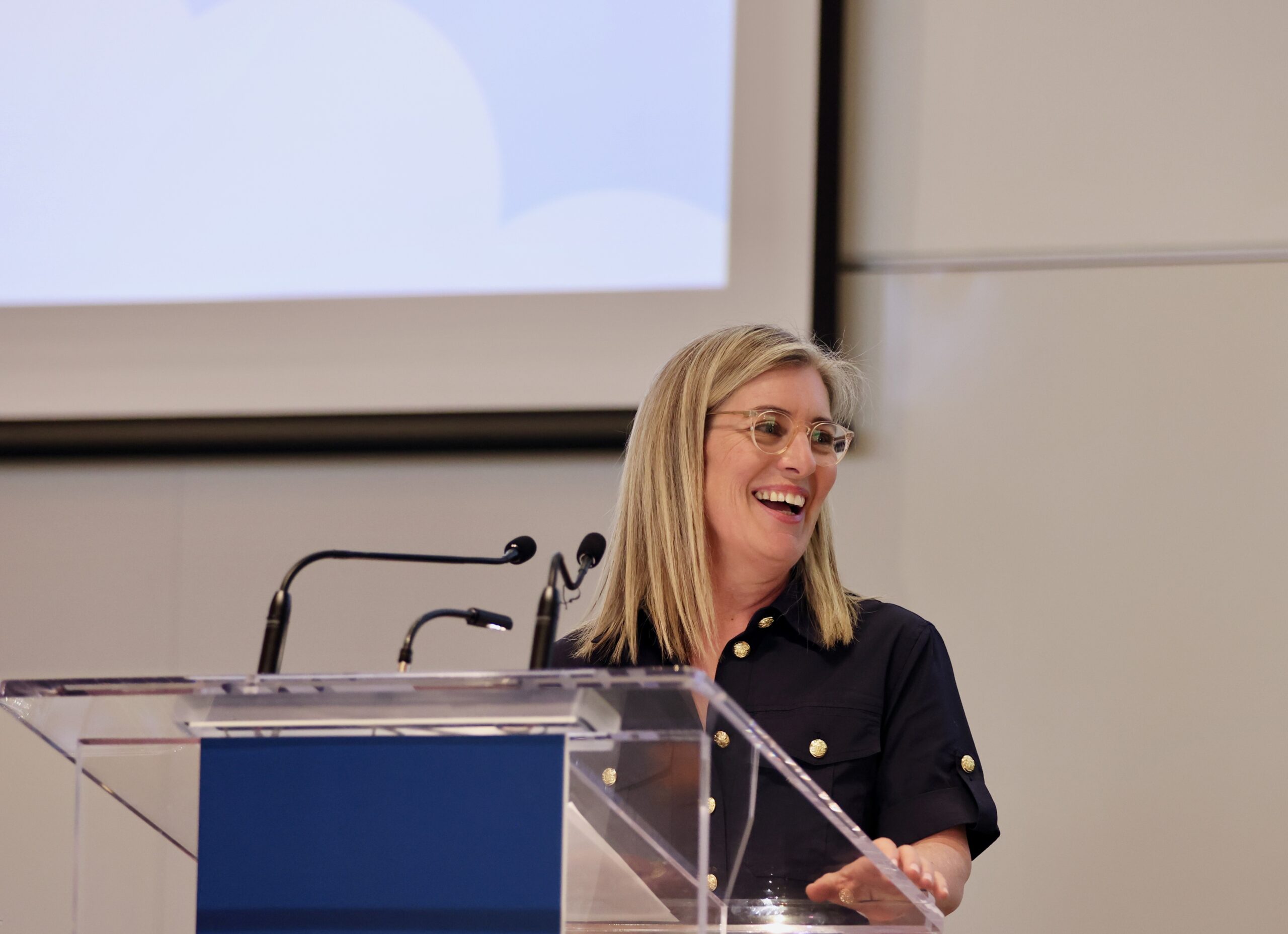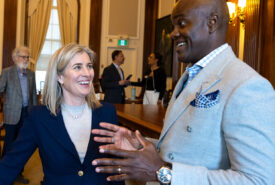
How? By fostering debate across differences – and educating citizens who will engage in civic life (Illustration by Andriy Onufriyenko/Getty Images)
This piece appeared in the University of Toronto Magazine on September 28, 2022.
University communities must engage challenging topics both to advance social progress and to teach the fundamentals of citizenship. If we succeed, we will enhance our ability to educate democratic citizens who are prepared to engage fully in civic life.
The second responsibility for universities flows directly from the first. We must foster excellence in all its forms. A broad and diverse range of people, experiences and perspectives must thrive on our campuses. Wrestling with new or uncomfortable ideas in the shared pursuit of knowledge sparks understanding and innovation. Healthy debate and purposeful pluralism require a varied intellectual environment. Echo-chamber dialogue, as we so often see online, is not dialogue at all, but empty monologue.
This points to the third key responsibility for universities: ensuring equality of access to education for students, and equality of opportunity for diverse faculty and staff. Universities have a special role to play in creating opportunity for those who come from disadvantaged and underrepresented backgrounds, providing a springboard to upward social mobility and seeding our campuses with a wider variety of perspectives.
To do this, universities must remain accessible to the broadest range of prospective students, faculty and staff, and we must seek them out rather than waiting for them to come to us. This means recruiting purposefully, as well as committing to student aid.
Canada’s university system is relatively successful in welcoming students from diverse backgrounds and offering an exceptional education. For example, the University of Toronto hosts upwards of 95,000 students, more than two-thirds of whom come from racialized communities, and one-half of our domestic undergraduate students come from households of modest means. At the same time, U of T is consistently ranked among the world’s top universities. So it is possible to do “excellence at scale,” and to achieve what we call “inclusive excellence.”
The COVID-19 pandemic and other major developments have exposed new challenges for pluralism, diversity and opportunity – and they have exacerbated traditional ones. Universities must acknowledge these challenges and tackle them head-on. After all, the support we enjoy from the public may well depend on our success in ensuring access for academically deserving students, regardless of their means or socio-cultural background, as well as our ability to model meaningful debate among people of diverse views.


